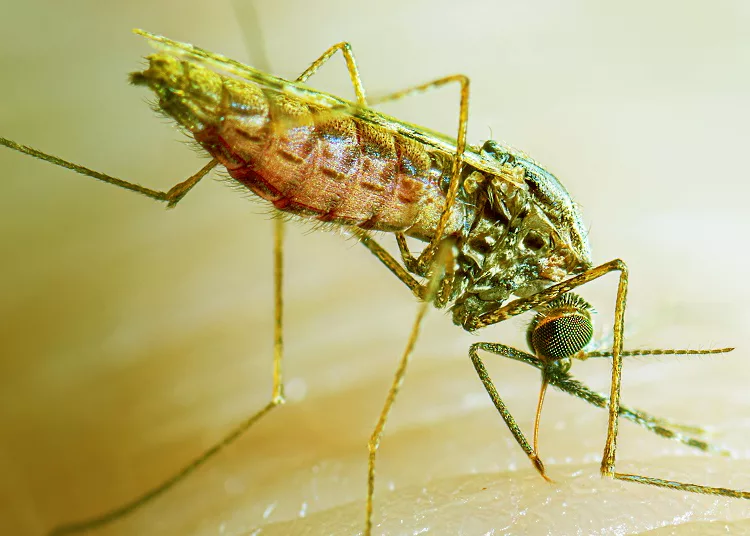The global community is once again called to confront the reality that malaria remains a public health issue particularly in Africa.
The sobering statistics speak volumes – an estimated 600,000 lives were lost to this preventable and treatable disease in 2022, with 95 per cent of these deaths occurring in the African region.
It is a travesty that in the 21st century, a disease that has plagued humanity for millennia continues to exact such a devastating toll, disproportionately impacting the world’s most vulnerable populations.
The theme for this year’s commemoration of this year’s world malaria day, “Accelerate the fight against malaria for a more equitable world,” serves as a reminder of the urgent need for a more expeditious action and sustained commitment to turn the tide against this ancient scourge.
The malaria burden in Africa is a story of profound inequity, with the poorest and most marginalized communities bearing the brunt of its impact.
In Nigeria, a country that accounts for nearly 27 per cent of the global malaria burden, the crisis is particularly acute. With an estimated 55 million cases and 90,000 malaria-related deaths annually, the disease remains a significant public health challenge, disproportionately affecting the impoverished and underserved populations.
The recent surge in the cost of vital antimalarial medications has exacerbated this crisis, rendering life-saving treatments out of reach for millions of Nigerians living in poverty.
Coartem, a brand of malaria drug which sold for N1,300 in 2022 now sells for N5,000, Lonart, another brand tablet is now N3,000 against N1,200 in 2022, Amatem Soft gel is now N2,600 against N1000 it was sold in 2022, Kalther Soft gel which was N800 in 2002 now goes for N1500.
When the price of a single pack of antibiotics exceeds the national monthly minimum wage, it is a stark indictment of a system that has failed to prioritize the health and well-being of its most vulnerable citizens.
This untenable situation underscores the urgent need for concerted action to address the underlying socioeconomic determinants that perpetuate the malaria burden in Nigeria .
Access to affordable and quality healthcare services, including preventive measures such as insecticide-treated bed nets and prompt diagnosis and treatment, must be a fundamental right, not a privilege reserved for the fortunate few.
The recent declaration by African Ministers of Health in Yaoundé, Cameroon, to accelerate efforts to end malaria deaths in the region, is a welcome development.
Their commitment to provide stronger leadership, increase domestic funding, enhance data technology, and apply the latest technical guidance in malaria control and elimination is a crucial step in the right direction.
However, words must be followed by tangible actions and sustained political will. Governments must prioritize health sector investments to bolster infrastructure, personnel, and program implementation.
Multi sectoral collaboration and partnerships for funding, research, and innovation must be fostered to leverage collective resources and expertise in combating this formidable foe.
The approval and roll-out of the RTS,S/AS01 malaria vaccine by the World Health Organization (WHO) represents a beacon of hope in the fight against malaria.
As the first-ever vaccine against a human parasite, it has the potential to save countless lives, particularly among children under five who bear the heaviest burden of the disease.
The unprecedented demand for this vaccine from at least 28 African countries is a testament to the urgency and determination to protect vulnerable populations.
However, supply constraints must be addressed promptly to ensure equitable access and maximize the vaccine’s life-saving potential.
In our view , Nigeria should actively support and participate in the development of additional malaria vaccine candidates, such as the R21/Matrix vaccine by Oxford University.
Sustained investment in research and innovation is crucial to developing new tools and strategies to outmaneuver this resilient and adaptable foe.
It is imperative that we recommit ourselves to the fight against this age-old adversary with renewed vigor and unwavering determination.
Addressing the malaria crisis in Nigeria requires a holistic approach that confronts the deeply entrenched inequalities that perpetuate its burden.
Poverty, lack of education, gender disparities, and limited access to health services are all inextricably linked to the malaria crisis, forming a vicious cycle that must be broken.
Empowering communities through education, promoting gender equality, and fostering inclusive economic growth are essential components of a comprehensive malaria control strategy.
We must seize this moment to accelerate the fight against malaria, not merely through piecemeal efforts, but through a comprehensive and multifaceted approach that addresses the root causes of this persistent public health crisis.
Investing in malaria control is not only a moral imperative but also an economic necessity. The disease exacts a heavy toll on productivity, education, and economic development, perpetuating cycles of poverty and impedes the realization of the Sustainable Development Goals (SDGs).
By prioritizing malaria elimination, we can unlock the vast potential of Nigeria’s human capital and catalyze broader socioeconomic progress.









